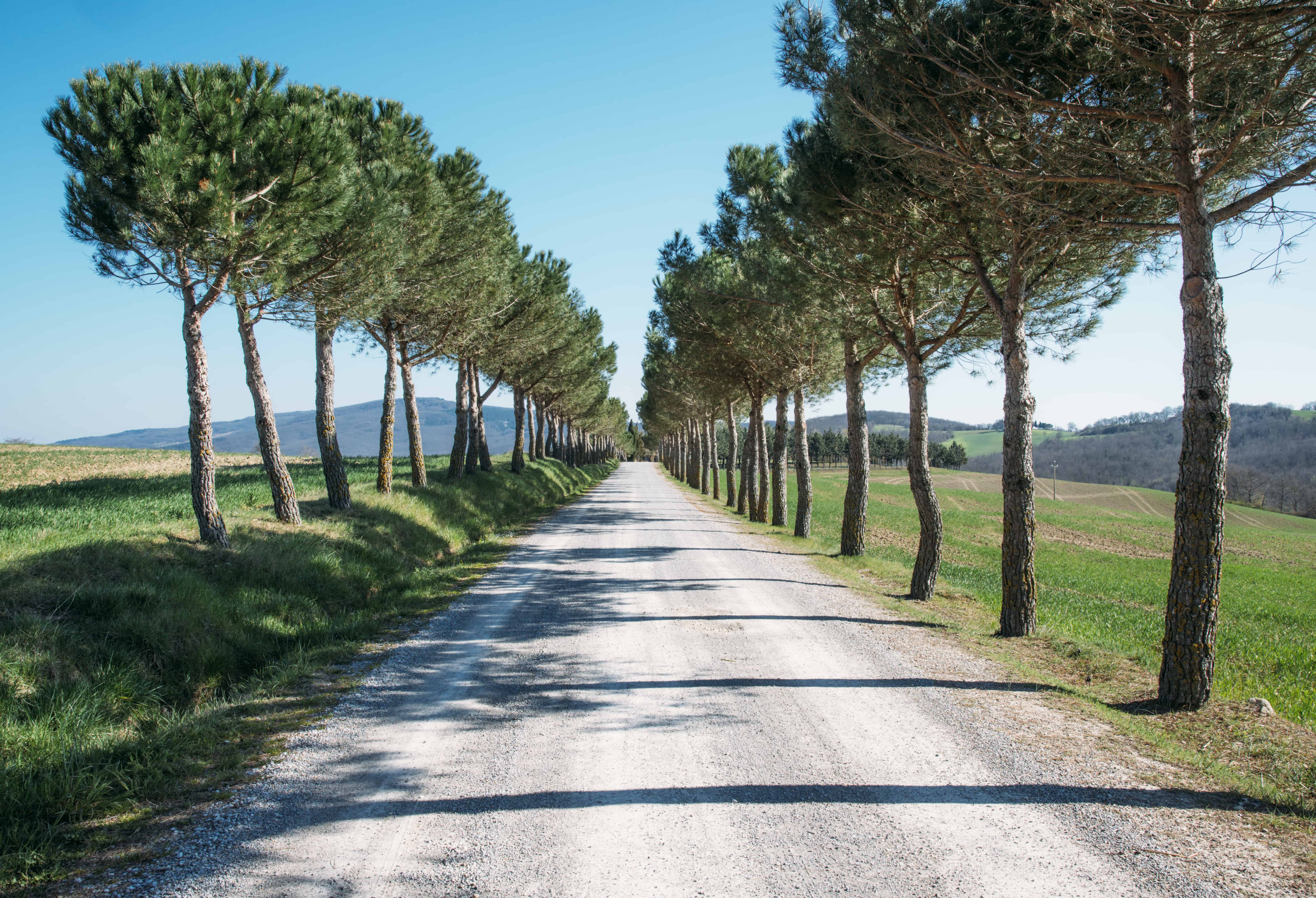
You probably don’t think about your driveway very much, even though it plays an integral role in your day to day life. The conduit upon which your car enters and exits your property, your driveway is actually a major part of homeownership. However, most homeowners don’t put much thought into their driveways or driveway materials until something goes wrong.
Instead of ignoring your driveway completely, think of your driveway like an extension of your property. It can impact market value just like other forms of exterior improvements. Outdoor elements like gardens and groomed grass can appeal to buyers just like parquet floors and marble countertops – and that includes your driveway.
This is what you need to know about driveway materials and what your choices mean for your property.
Concrete
Concrete is among the most common options for driveway paving for a few key reasons. First, it’s easy to maintain for a long period of time and comes in a neutral color so that it fits in with virtually any decor style. When properly installed, concrete can last for years without any maintenance at all, creating a lovely look that will resonate with buyers and homeowners alike.
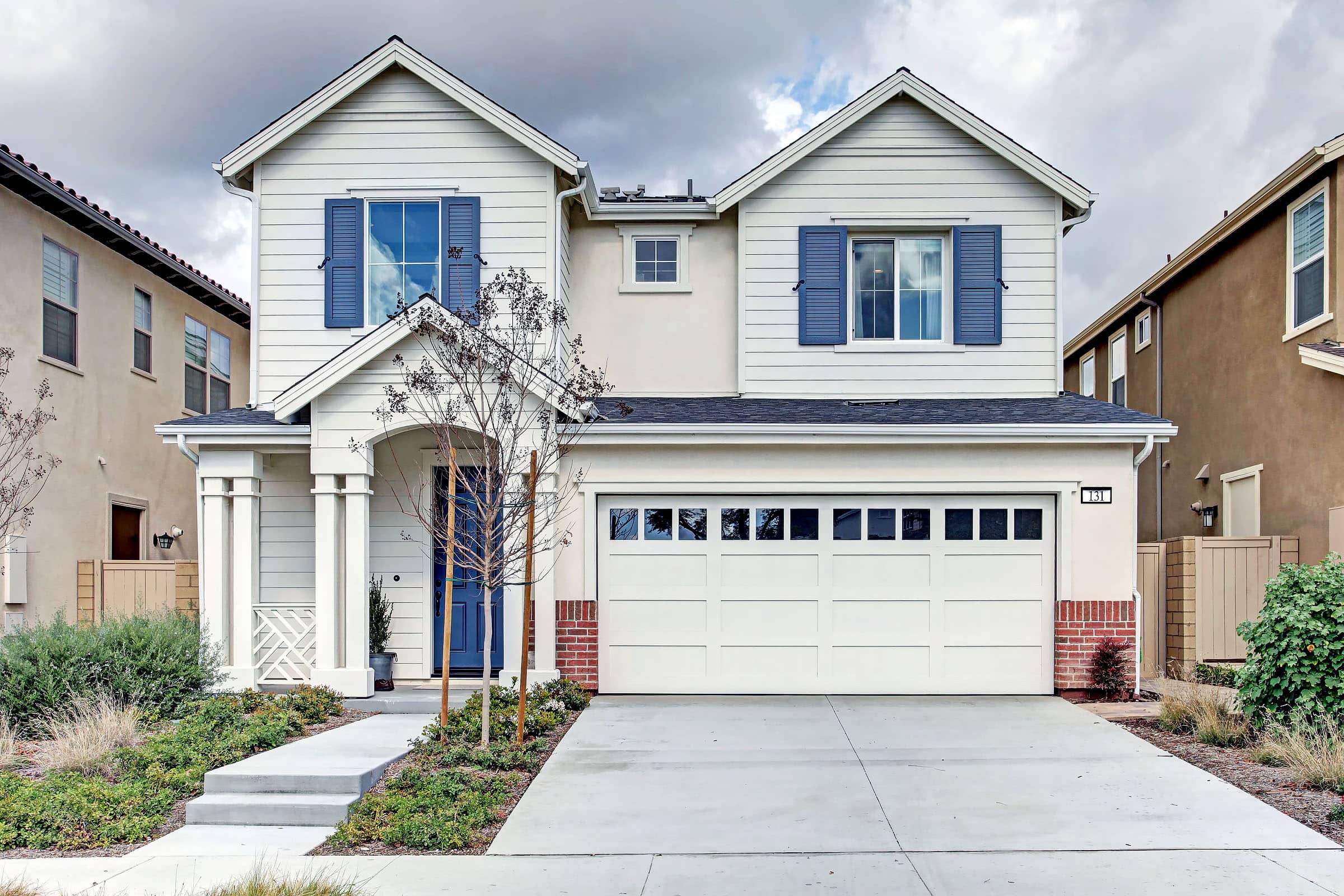
However, concrete isn’t perfect. As a light surface, concrete stains easily. This can be an issue for those who do things like work on car repairs in the driveway. In cold climates, concrete can also be problematic. For example, de-icing procedures can break down the surface, causing cracks and increasing the need for more frequent replacement. However, with proper maintenance and professional consulting, you can avoid the negative costs associated with wear and tear.
Cost of Concrete Driveway
Concrete is a relatively cheap option, particularly for small driveways. At around $3 to $10 per square foot, a 100 square foot driveway will cost anywhere from $300 to $1,000 to install – a relative deal in the world of property improvements.
Asphalt
A composite made up of sand, rock, and asphalt cement, asphalt is a very common material for driveways around the country. Generally black in appearance, asphalt looks, at minimum, unobtrusive on virtually any property. It is a popular option due to its affordable costs and ease of use. As an incredibly simple surface to implement, especially with professional installation, a fresh coat of asphalt can fine-tune any tattered or worn-out driveway. Asphalt is among the best opportunities for those with very large driveways that would be prohibitively expensive to cover with more costly materials.
In spite of the benefits, asphalt isn’t perfect. Asphalt requires more frequent repairs than other materials as the surface is quite soft, making cracking a possibility. If you’re searching for say, homes for sale in Salt Lake City, you should be wary of how your asphalt driveway will stand up to snow and ice over time. Most homeowners will need to patch surface cracks at least once a year. After several years of patching, asphalt driveways may appear less attractive than right after installation, in which case you’d need to reach out to your local paver for resurfacing.
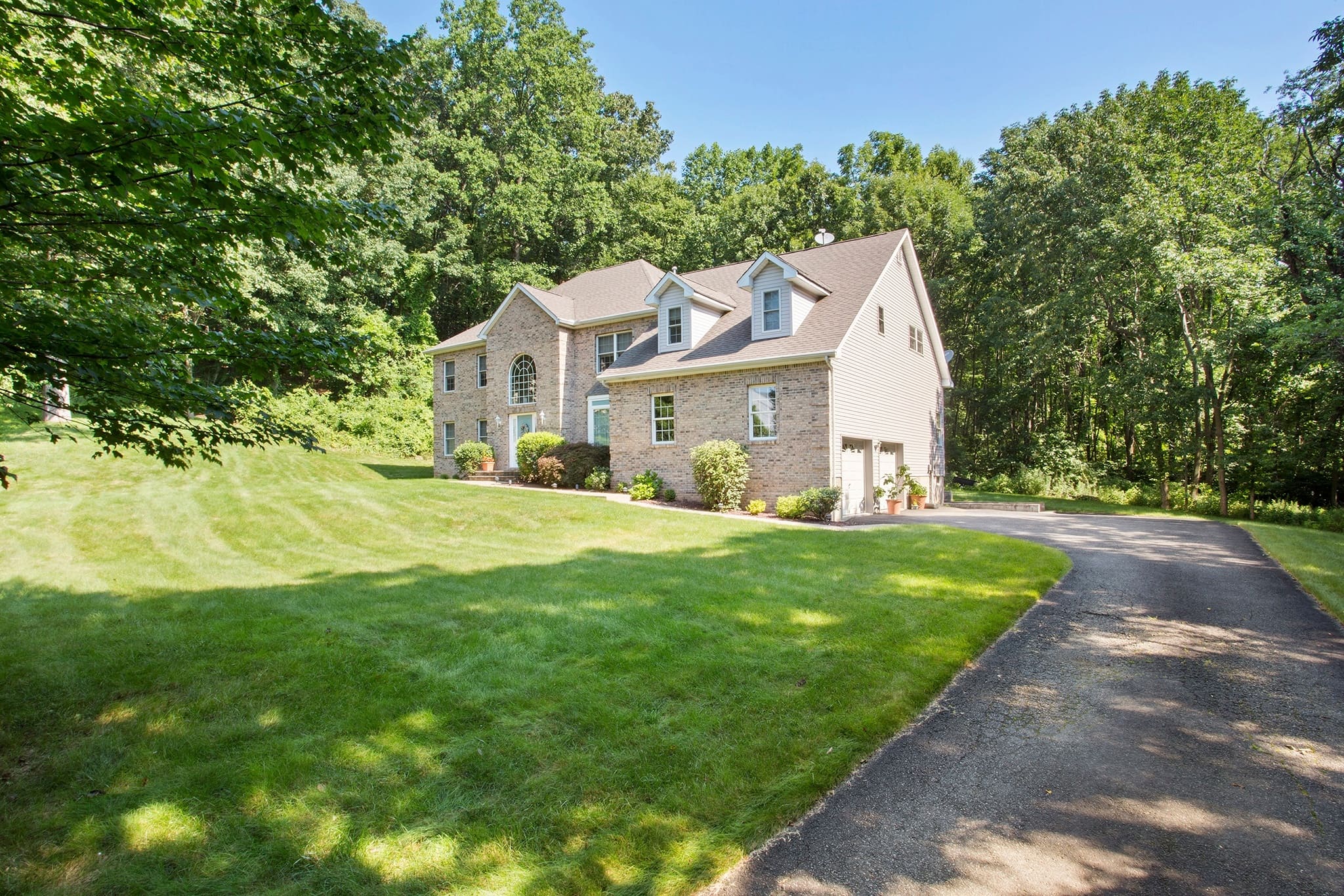
If you’re wondering how much to pave a driveway, that truly depends on circumstances surrounding the driveway. In most cases, homeowners can go years between repaving asphalt driveways. However, things like use and climate can lead to more frequent replacements. In general, most asphalt driveways that are properly cared for and aren’t heavily utilized can last around 10 to 15 years.
Cost of Asphalt Driveway
Asphalt is the cheapest of most major options, with an overall cost of around $2 to $5 per square foot. For those with a large driveway, asphalt can provide comprehensive coverage without a large investment.
Gravel
Gravel isn’t as popular as choices like asphalt or concrete. However, for those with long driveways or who live in in a country or rural setting, gravel can create a lovely look while still providing an affordable surface. They consist of small white or gray-colored stones poured along the course of the driveway with some form of barrier to keep gravel contained.
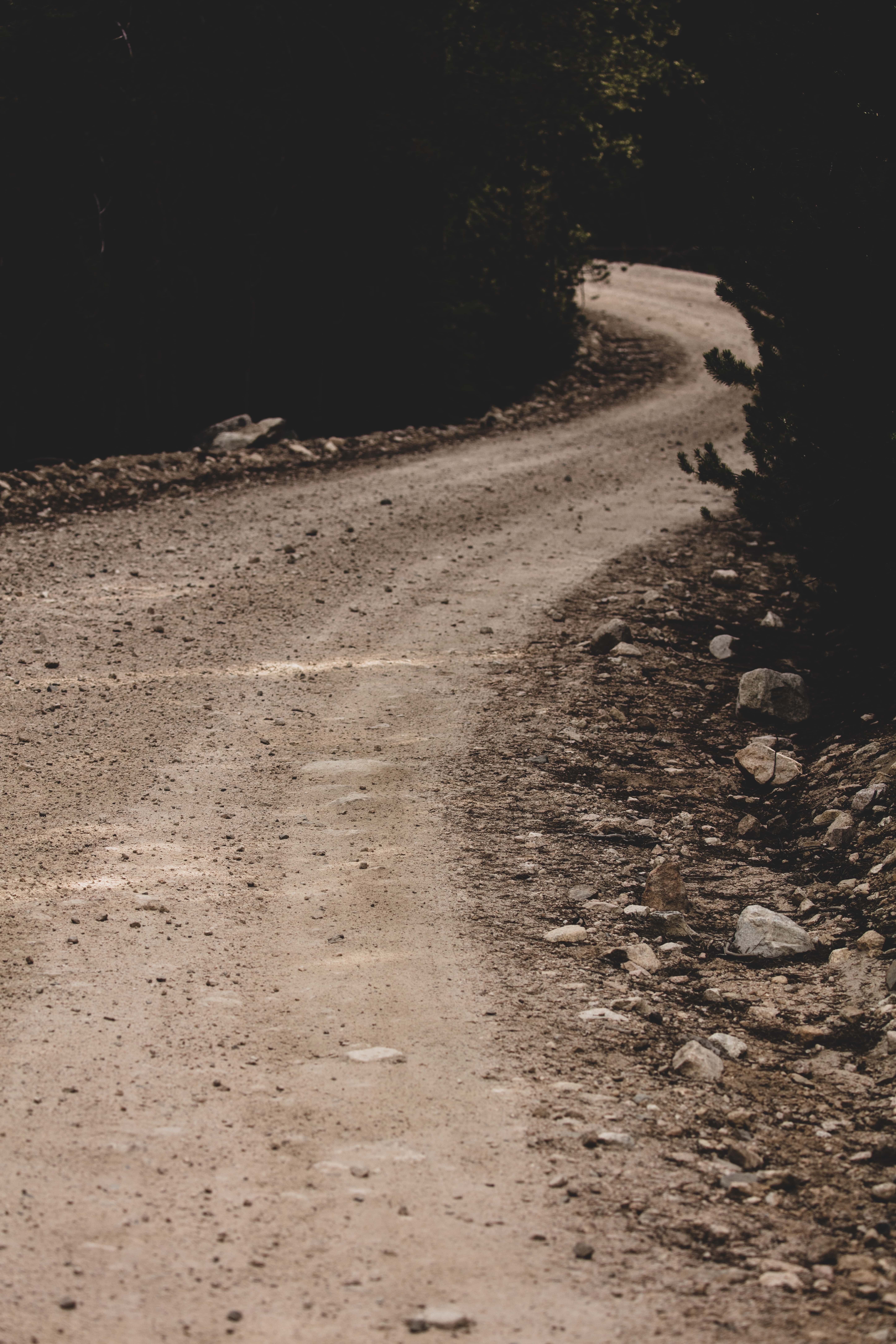
Gravel has several distinct downsides that make it a less popular choice for those renovating or repaving a driveway. First, driving on a gravel driveway is a bumpier experience and can cause greater tire wear and tear, although only to a small degree. As a loose material, gravel is less permanent than asphalt or concrete, and stones may shift over time. In general, gravel needs to be replaced every year or two, creating a lot of work, in spite of cost savings.
Cost of Gravel Driveway
Gravel is extremely affordable, costing around $1 to $3 per square foot. However, price isn’t the only thing that matters. Gravel isn’t the right fit for all properties and can occasionally be a turn-off for buyers who prefer other materials.
Brick
For those who want a more elegant solution to a traditional driveway, brick or stone pavers can be an excellent alternative. Especially ideal for those with older homes in a more traditional style or in high-end areas, brick can add a classic touch that more conventional alternatives can’t match. This can have a significant impact on property values, providing a rustic, classic look that will appeal to buyers. If something happens to one brick, it’s relatively simple to replace it with another, ensuring an easy and affordable way to keep a driveway looking its best. When properly installed, a brick driveway can last for decades with only minor maintenance.
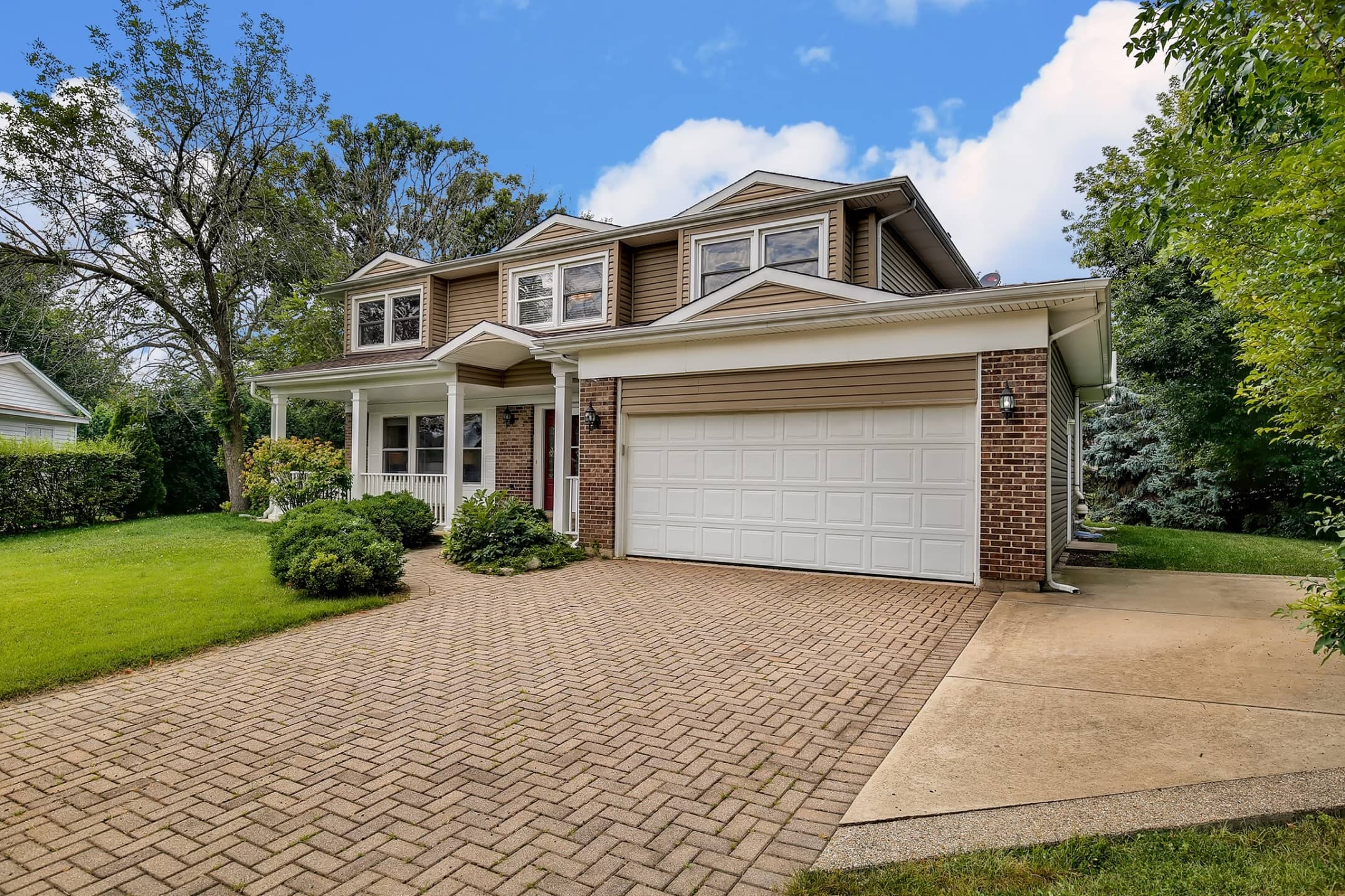
Brick, however, is among the most expensive options for a driveway and isn’t suitable for all properties. New builds, for example, likely won’t look quite as nice with a brick driveway.
Cost of Brick Driveway
Brick isn’t a cheap investment for your property, with an average cost of $10 to $30 per square foot. Installation can also involve extra steps, like edging the property to make sure bricks fit in properly.
Cobblestone
Cobblestone is similar to brick in many ways, creating an elegant and historical appearance that is relatively rare in modern driveways. A throwback to centuries past, cobblestones are an excellent choice for historic mansions and other traditional homes in areas of the country like the Northeast. With many of the same benefits as brick, including relatively simple repair – the size discrepancy in cobblestones can make replacement slightly more challenging, but not significantly. With long-lasting presence provided proper care, cobblestone is an excellent choice for property owners who favor a look that goes above and beyond.
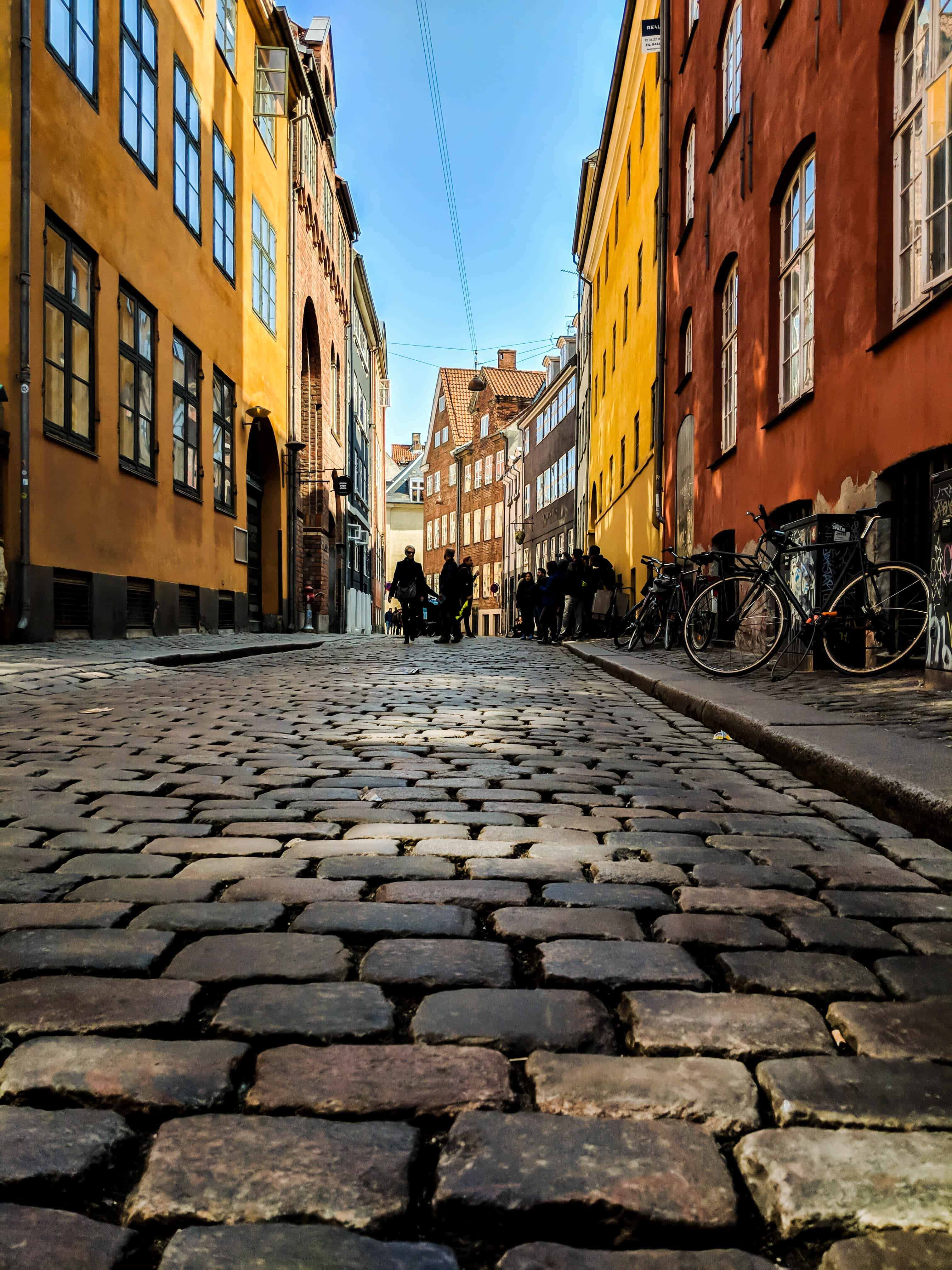
Like brick, however, cobblestone is anything but cheap. As it’s not a common material for driveways, finding competitive pricing isn’t always easy. Additionally, the installation process can be challenging to handle solo. Snow removal can also be difficult on cobblestone due to the uneven surface.
Cost of Cobblestone Driveway
Cobblestone is generally the most expensive option for any driveway. Depending on the stones in question, costs per square foot average around $20 to $70.
Chipseal
Chipseal isn’t a common choice for driveway surfacing in much of the country. However, homeowners looking for a rustic or unique edge may enjoy the interesting texture and appearance provided by chipseal. Essentially, chipseal is a thin asphalt layer topped with crushed stone. This crushed stone can be customized, giving homeowners a great opportunity to choose color based on home appearance and geographical area. There is little maintenance required in chipseal driveways. It is also just as stable and smooth to drive on as concrete or asphalt. If you live out in the country, chipseal can provide a nice alternative to dirt or gravel roads. It takes far less maintenance and is a much cleaner option, preventing your car from getting covered in dust and dirt every time you roll back into the garage.
Chipseal doesn’t have the longevity of other forms of driveway materials, like asphalt and concrete, with an average lifespan of five to seven years. For those who like a property that doesn’t require replacements or repairs on a regular basis, chipseal may not be the best choice.
Cost of Chipseal Driveway
In addition to an attractive appearance, chipseal is also very affordable. At an average price of $5 to $7 per square foot, chipseal rivals concrete pricing yet offers a more interesting and customizable surface.
Points to Consider
If you’re considering replacing your driveway, whether to increase property values or to upgrade your own living experience, there are several points to consider.
- Your budget; do you have enough spare cash to finance the driveway of your dreams? Know that functionality is similar from one option to another. Consequently, a cheaper option like asphalt or chipseal can be good for almost any property.
- DIY vs. professional help; costs can vary greatly depending on who handles the installation. If you’re doing it yourself, you can save big. However, partnering with a driveway expert can ensure an amazing finished product in next to no time.
- Area trends; the homes around you can help inspire your driveway dreams, so be sure your choice meshes with the neighborhood aesthetic.
- Climate; cold climates, for example, can prematurely wear driveways, so be sure you’re choosing a material that can withstand freezing and thawing. Or, even better, opt for a heated driveway.
- Wear and tear; who will be using your driveway? Might any excessive use, like regular guests or a large number of owned vehicles, potentially shorten the life of your chosen driveway materials?
Whether you realize it or not, the driveway material you choose is an important part of the exterior of your home. With proper maintenance and the right choice of materials, it’s possible to create a driveway that works effectively, fits with your home decor, and raises the market value of your property – no matter where you live.

 United States
United States Canada
Canada